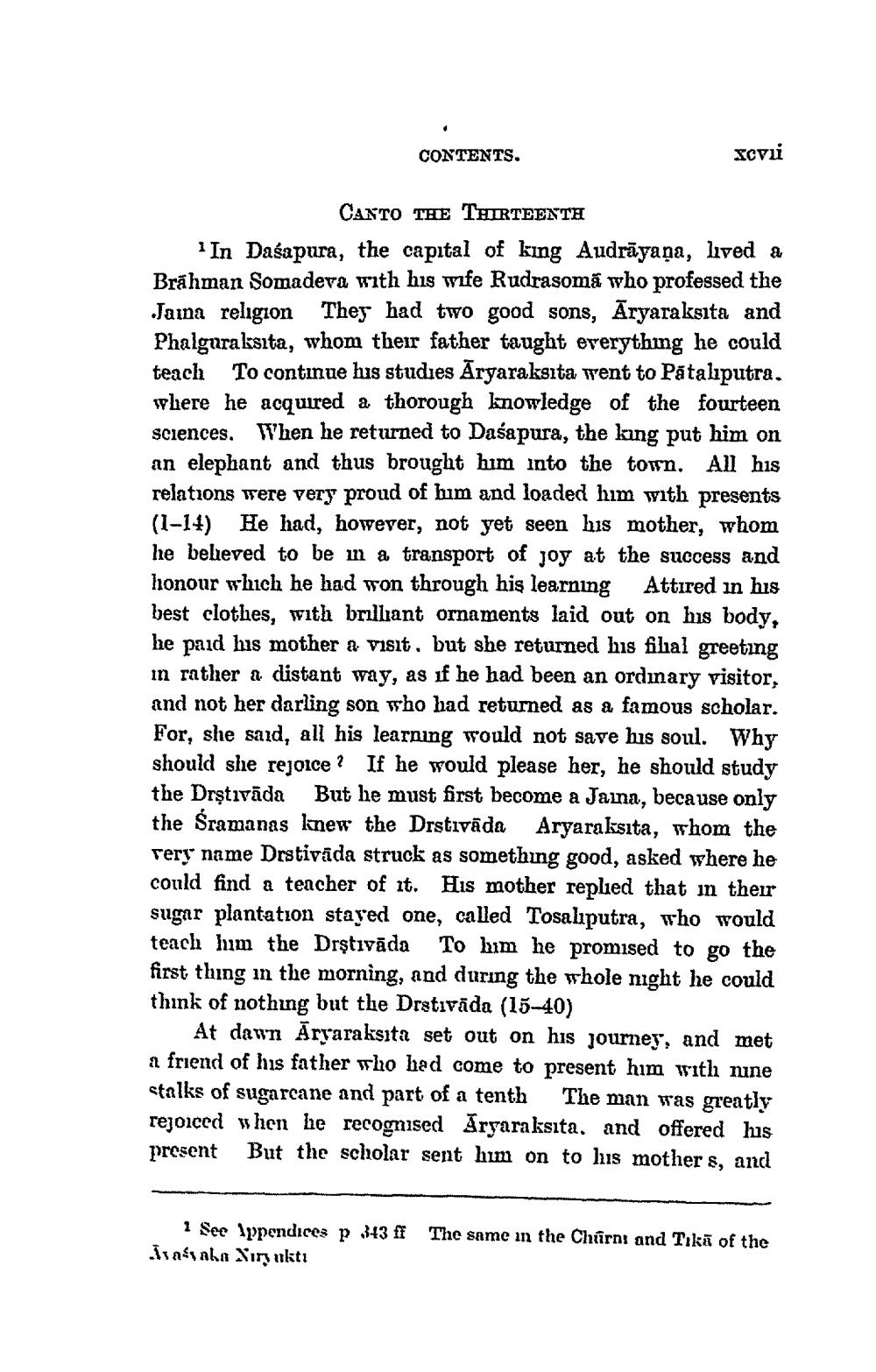________________
CONTENTS.
xcvii
CANTO THE THIRTEENTH In Daśapura, the capital of king Audrāyaṇa, lived a Brāhman Somadera with his wife Rudrasomā who professed the Jaina religion They had two good sons, Āryaraksta and Phalguraksita, whom their father taught ererything he could teach To continue his studies Āryaraksıta went to Pătalıputra. where he acquired a thorough knowledge of the fourteen sciences. When he returned to Daśapura, the king put him on an elephant and thus brought him into the town. All his relations were very proud of him and loaded him with presents (1-14) He had, however, not yet seen his mother, whom he believed to be in a transport of joy at the success and honour which he had won through his learning Attired in his best clothes, vith brilliant ornaments laid out on his body, he paid his mother a visit, but she returned his filial greeting in rather & distant way, as if he had been an ordinary visitor, and not her darling son who had returned as a famous scholar. For, she said, all his learning would not save his soul. Why should she rejoice? If he would please her, he should study the Drştıvāda But he must first become a Jaina, because only the Sramanas knew the Drstivāda Aryaraksita, whom the very name Destivāda struck as something good, asked where he could find a teacher of it. His mother replied that in their sugar plantation stayed one, called Tosaliputra, who would teach him the Drştıvāda To him he promised to go the first thing in the morning, and during the whole night he could think of nothing but the Drstivāda (15-40)
At daun Aryaraksıta set out on his journey, and met a friend of his father who had come to present him with nine stalks of sugarcane and part of a tenth The man was greatly rejoiced when he recognised Aryara ksita. and offered his present But the scholar sent him on to lus mother s, and
1 See lypendices p 343 ff แถึง non Niry natt
The same in the Chirnı and Tikā of the




